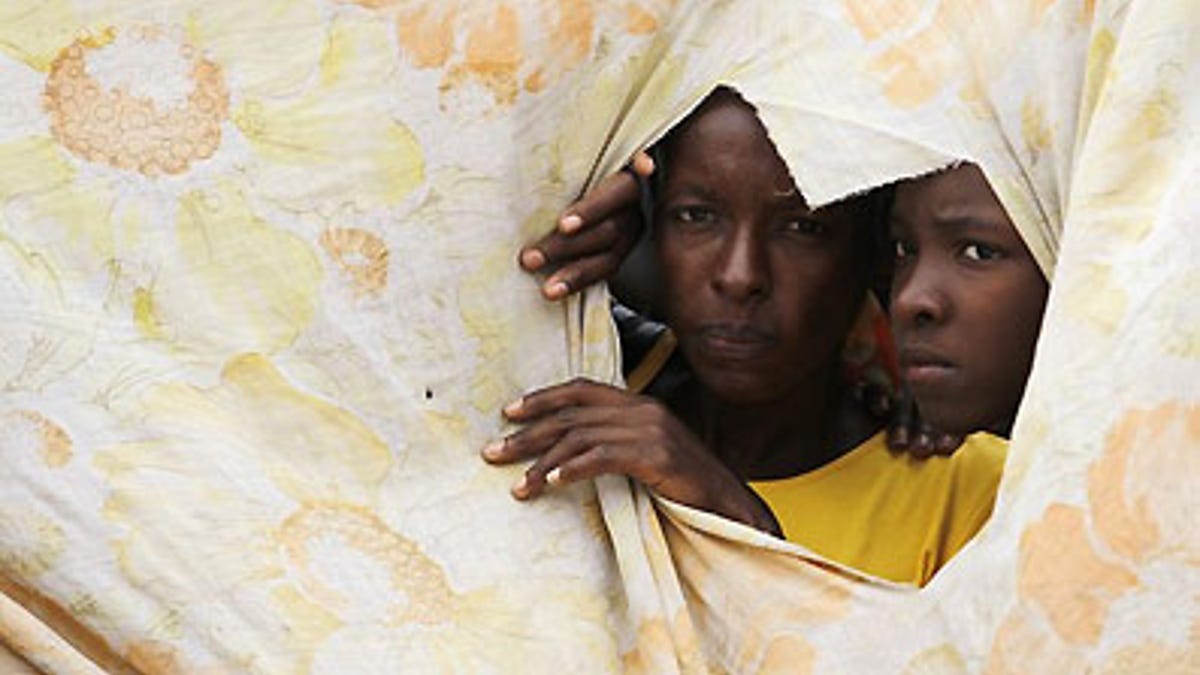
Reuters
As someone who has lived in several places in the Caribbean, I am well aware of the fragility and pride that exist in the nations there. I have been able to visit Haiti many times and I’ve seen firsthand the misery that saturates the entire country.
The 7.0 earthquake that rocked Haiti to its very foundation, is just the latest in a string of seemingly endless tragedies.
Let me start with a little history. Haiti, a nation neighboring the Dominican Republic to its east, is on the island Hispaniola. Hispaniola was discovered -- well before what we now call North America -- by Christopher Columbus.
Like other Caribbean nations, Haiti saw its share of upheaval as it went from Spanish control to British, Dutch and eventually being taken over by the French. It fought and won its independence in the 1800s, but at a heavy price.
In 1957, Dr. Francios Duvalier was elected the country’ president. During his early years, Duvalier was known for his humanitarian efforts, which quickly disappeared into one of modern history’s most corrupt and repressive regimes.
Under Duvalier it is estimated that 30,000 Haitians lost their lives. In 1964, “Papa Doc,” as Duvalier was then known, declared himself, “President for Life.” The Tonton Macoutes, a paramilitary group was put under his control. They were created with the simple purpose of enforcing Duvalier’s will by way of threats, voodoo and other forms of intimidation.
After “Papa Doc” died in 1971, his son, Jean-Claude, was placed in power and control of Haiti. “Baby Doc” as he became to be known, stole hundreds of millions through the tobacco administration.
In 1986, Duvalier resigned from power and left to live in exile, but not without sending Haiti deeper into economic despair.
Fast forward to 2010. The 7.0 earthquake has taken a country already in deep despair to utterly dire straits. Haiti now has two options if it is to survive.
The first option is to leave things as they are. To stick with the status quo, in other words. This would mean a continuation of policies (or lack thereof) that have already created many problems: piecemeal assistance in the form of aid from around the world, little enforcement of the rule of law and little oversight with just a sliver of hope for a brighter future for Haiti.
The second and more radical option is to integrate Haiti with the Dominican Republic. Like the reunification of East Germany and West Germany, there will be structural, political and sovereignty issues to contend with.
Haiti is a destitute nation that suffers not only from the lack of a strategic vision of what it should be, but also from a lack of any kind of effective leadership.
Haiti is a nation where government has little if any powers. There are only a few people in the Haitian government -- and that number could be even smaller now -- who possess the will, skills and know-how required for true nation building.
Instead there is widespread corruption throughout the government at all levels and an unemployment rate that exceeds eighty percent. It is a country in which many go hungry every day and resort to eating “clay pies” made of dirt. Corruption, unemployment and yes, hunger, exists in many developed nations, and even in the mightiest of them all, the United States of America -- but nowhere is this as pervasive as in Haiti.
I propose that Haiti be merged with the Dominican Republic.
My proposal is to use a business-style approach much like that used by major corporations where the merger process brings forth each company's strengths and weaknesses, and like the merger of two corporations, each can be analyzed to assure that the new company will be an entity that will bring about positive and long lasting change.
This new nation state, perhaps called the “Dominican Haiti Republic”, can evolve into a nation with a combined population of 19 million, who would be able to harness its natural resources collaboratively and govern in unison.
There will inevitably be power struggles and fights over who gets what and how, and who will lead this new nation, but just like the merger of major corporations, these issues can be re-mediated at the beginning.
Economic powers from throughout the world can come together to provide guidance and funds for this bold initiative, rather then just funding something that has failed to provide even a semblance of a return on investment.
Of course, there will be those critics who will deride this as too much experimentation with a nation that has refused to accept change, but I say this, that doing nothing will continue to perpetuate a vicious cycle in which Haitians will only survive in the smallest of senses; while others will seek to migrate to other places in order to find a better life.
We are all now opening our wallets and our hearts to the fallen of Haiti, but what they need most now is for our collective brainpower to be brought to bear on a very sad and destitute nation with a people whose great faith and hope is rapidly diminishing for a future filled with a better tomorrow.
Nothing but the most radical of approaches must be attempted. Doing nothing is not an option. If we choose to do nothing Haiti will become a nation that will continue to exist in even greater poverty and greater loss. And it will become a nation populated by the most physically and emotionally scarred people on earth.
Daniel Rodriguez is co-founder of the Alliance for Economic Stability and an adjunct professor of International Business at Mercy College in New York.
